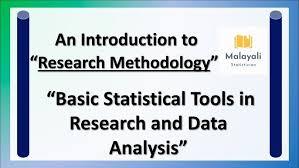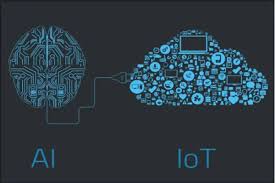Understanding Data Processing and Analysis
In today’s digital age, data is one of the most valuable assets for businesses and organisations. The ability to process and analyse data effectively can provide insights that drive decision-making, enhance operational efficiency, and foster innovation. This article explores the fundamentals of data processing and analysis, highlighting their importance in modern business practices.
What is Data Processing?
Data processing refers to the collection and manipulation of raw data to produce meaningful information. This process typically involves several stages:
- Data Collection: Gathering raw data from various sources such as databases, sensors, or user inputs.
- Data Cleaning: Removing or correcting errors and inconsistencies within the data set to ensure accuracy.
- Data Transformation: Converting data into a suitable format or structure for analysis. This may involve normalisation, aggregation, or encoding.
- Data Storage: Organising processed data in databases or other storage systems for easy retrieval and analysis.
The goal of data processing is to transform raw data into a structured format that can be easily interpreted and analysed by businesses.
The Role of Data Analysis
Once the data has been processed, it moves on to the analysis phase. Data analysis involves examining datasets to uncover patterns, correlations, trends, or anomalies that can inform strategic decisions. There are several techniques used in data analysis:
- Descriptive Analysis: Summarising historical data to understand what has happened in the past.
- Diagnostic Analysis: Investigating the root causes of past outcomes or events.
- Predictive Analysis: Using statistical models and machine learning algorithms to forecast future trends based on historical data.
- Prescriptive Analysis: Recommending actions based on predictive insights to achieve desired outcomes.
The Importance of Data Processing and Analysis
The ability to process and analyse data effectively provides numerous benefits for organisations:
- Informed Decision-Making: By transforming raw data into actionable insights, businesses can make more informed decisions that align with their strategic goals.
- Operational Efficiency: Identifying inefficiencies through detailed analysis allows organisations to streamline processes and reduce costs.
- CUSTOMER INSIGHTS: P: Understanding customer behaviour through detailed analysis helps tailor products and services to meet customer needs better.
CUSTOMER INSIGHTS:
: THE ABILITY TO PROCESS AND ANALYSE DATA EFFECTIVELY PROVIDES NUMEROUS BENEFITS FOR ORGANISATIONS:
: THE ABILITY TO PROCESS AND ANALYSE DATA EFFECTIVELY PROVIDES NUMEROUS BENEFITS FOR ORGANISATIONS:
: THE ABILITY TO PROCESS AND ANALYSE DATA EFFECTIVELY PROVIDES NUMEROUS BENEFITS FOR ORGANISATIONS:
: THE ABILITY TO PROCESS AND ANALYSE DATA EFFECTIVELY PROVIDES NUMEROUS BENEFITS FOR ORGANISATIONS:
: THE ABILITY TO PROCESS AND ANALYSE DATA EFFECTIVELY PROVIDES NUMEROUS BENEFITS FOR ORGANISATIONS:
: THE ABILITY TO PROCESS AND ANALYSE DATA EFFECTIVELY PROVIDES NUMEROUS BENEFITS FOR ORGANISATIONS:
: THE ABILITY TO PROCESS AND ANALYSE DATA EFFECTIVELY PROVIDES NUMEROUS BENEFITS FOR ORGANISATIONS:
Eight Advantages of Data Processing and Analysis for Modern Businesses
- Enhances decision-making by providing valuable insights
- Improves operational efficiency through data-driven optimizations
- Identifies trends and patterns that may not be apparent otherwise
- Helps in predicting future outcomes based on historical data
- Enables organisations to personalise products and services for customers
- Facilitates early detection of anomalies or issues within datasets
- Supports strategic planning by offering a deeper understanding of business performance
- Empowers businesses to stay competitive in a data-driven market
Challenges in Data Processing and Analysis: Privacy, Cost, and Complexity
Enhances decision-making by providing valuable insights
Data processing and analysis play a crucial role in enhancing decision-making by providing valuable insights derived from the interpretation of data. By transforming raw data into meaningful information, businesses can gain a deeper understanding of trends, patterns, and correlations that influence their operations. These insights empower decision-makers to make informed choices that are backed by data-driven evidence, ultimately leading to more strategic and effective outcomes.
Improves operational efficiency through data-driven optimizations
Data processing and analysis play a crucial role in improving operational efficiency through data-driven optimizations. By analysing large datasets, businesses can identify inefficiencies, streamline processes, and make informed decisions to enhance overall productivity. This proactive approach enables organisations to pinpoint areas for improvement, implement targeted strategies, and ultimately achieve cost savings while maximising output. Through data processing and analysis, businesses can unlock valuable insights that drive continuous improvements and sustainable growth.
Identifies trends and patterns that may not be apparent otherwise
Data processing and analysis play a crucial role in identifying trends and patterns that may not be readily apparent through manual examination of raw data. By leveraging advanced algorithms and statistical techniques, organisations can uncover hidden insights that offer valuable strategic advantages. These trends and patterns can reveal emerging market opportunities, customer preferences, operational inefficiencies, or potential risks, enabling businesses to make proactive decisions and stay ahead of the competition. The ability to unearth these insights through data processing and analysis empowers organisations to adapt quickly to changing circumstances and drive innovation in their respective industries.
Helps in predicting future outcomes based on historical data
One significant advantage of data processing and analysis is its ability to help predict future outcomes based on historical data. By analysing patterns and trends within past datasets, businesses can utilise predictive analytics to forecast potential scenarios and make informed decisions. This proactive approach enables organisations to anticipate changes, mitigate risks, and seize opportunities, ultimately enhancing their strategic planning and decision-making processes.
Enables organisations to personalise products and services for customers
Data processing and analysis play a crucial role in enabling organisations to personalise products and services for customers. By analysing customer data, preferences, and behaviours, businesses can gain valuable insights that allow them to tailor their offerings to meet individual needs effectively. This level of personalisation not only enhances customer satisfaction but also fosters loyalty and strengthens relationships with clients. Through data processing and analysis, organisations can create bespoke experiences that resonate with customers on a deeper level, ultimately driving business growth and success.
Facilitates early detection of anomalies or issues within datasets
Data processing and analysis play a crucial role in facilitating the early detection of anomalies or issues within datasets. By systematically processing and analysing data, businesses can swiftly identify irregularities, discrepancies, or potential problems that may otherwise go unnoticed. This proactive approach enables organisations to take corrective action promptly, preventing larger issues from arising and ensuring the integrity and accuracy of their data for informed decision-making.
Supports strategic planning by offering a deeper understanding of business performance
Data processing and analysis support strategic planning by providing a deeper understanding of business performance. By analysing data trends, patterns, and key performance indicators, organisations can gain valuable insights into their operations, customer behaviour, and market dynamics. This in-depth understanding enables businesses to make informed decisions, identify areas for improvement, and develop effective strategies to drive growth and success. Ultimately, data processing and analysis play a crucial role in enhancing strategic planning processes and ensuring that businesses are equipped to navigate the complexities of today’s competitive landscape.
Empowers businesses to stay competitive in a data-driven market
Data processing and analysis empower businesses to stay competitive in a data-driven market by providing valuable insights that drive strategic decision-making. By harnessing the power of processed data, businesses can uncover trends, patterns, and opportunities that give them a competitive edge. Through in-depth analysis, organisations can adapt quickly to market changes, anticipate customer needs, and optimise operations for maximum efficiency. In today’s fast-paced business environment, the ability to leverage data effectively is crucial for staying ahead of the competition and thriving in a landscape where data is king.
Data Privacy Concerns
Data processing and analysis pose a significant con in the form of data privacy concerns. Handling sensitive or personal information during these processes can raise ethical and legal challenges. Ensuring strict compliance with data protection regulations, such as GDPR, can be particularly demanding for businesses. The risk of data breaches or misuse of personal data underscores the importance of implementing robust security measures and ethical practices in data processing and analysis to safeguard individuals’ privacy rights.
Costly Implementation
One significant drawback of data processing and analysis is the costly implementation involved. Developing and maintaining robust data processing and analysis systems often demands a substantial financial investment. This includes acquiring advanced technology, specialised tools, and hiring skilled professionals capable of managing and analysing the data effectively. The expenses associated with setting up such infrastructure can be a barrier for many organisations looking to leverage data-driven insights for decision-making and operational improvements.
Complexity and Time-Consuming
One significant con of data processing and analysis is the inherent complexity and time-consuming nature of the process, particularly when dealing with large datasets. Extracting valuable insights from vast amounts of data can be a daunting task that demands considerable resources and expertise. The intricate nature of handling complex data structures and the need for meticulous analysis can result in prolonged timelines for deriving meaningful conclusions. As a result, organisations may face challenges in efficiently utilising their data to make informed decisions due to the demanding nature of data processing and analysis.






